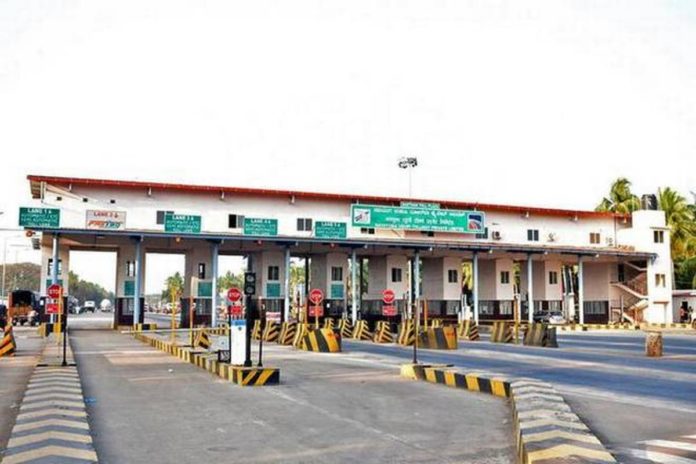By Sampson Ikemitang
On the 21st of August 2019, news hit the airwaves about the closure of Nigeria’s land borders. Indeed, this development has since not gone down well with many Nigerians as it continues to generate different shades of opinion among them. Whilst some member of the public have endorsed the Federal Government decision to close the borders, describing it as the most successful and effective measure so far adopted in order to curtail the influx of smuggled item and irregular migration to the country.They are also optimistic that the hitherto unhealthy competition faced by local industries from imported goods would be minimized if not utterly eradicated.
Conversely, others who are vehemently opposed to the move have simply dismissed the claim with a wave of the hand, insisting that the situation will not make any significant difference. They have been swift to make copious references to similar borders closure in the past, such as the 2004 and 2016 exercises respectively. Be that as it may, one cannot agree-less that the porosity of the nation’s borders still remain a major challenge bedevilling the success of effective surveillance across the country.
However, President Muhammadu Buhari has posited that the move has become necessary in order to stave off the massive smuggling activities, especially of rice and other contra bands taking place at these corridors. The exercise which was code-named‘Exercise Swift Response’, was being jointly conducted by the Customs, Immigration, Police and Military personnel, and is being coordinated by the Office of the National Security Adviser (ONSA).
It is not unexpected that border closure will certainly have some negative consequences for informal trading activities especially along the Benin-Nigeria border as these two economies are closely intertwined. Interestingly, it was discovered that this informal trade generates substantial income and employment in the Republic of Benin, and the Beninese’s government collects substantial revenues from such goods.
It will be recalled that Nigeria had banned the importation of rice from Benin in 2004 and from all its neighbours in 2016 but that did not stop the trade. Recall also that the Central Bank of Nigeria (CBN) had earlier this year drew up a list of 41 items whose importation, as it were, was no longer welcomed into the country. Remember that rice and other food item featured prominently on this list.
According to The Guardian Newspaper of July 15, 2019, Benin topped the list of 184 countries importing rice from Thailand, the second largest producer of rice in the world. One can say without fear of contradiction that the Benin port serves as a transit route for rice and other goods coming into Nigeria from the Asian continent.
Perhaps, what is worth considering in the circumstance is: why would Benin Republic, with a population of 11.5 million people import more than what China does? For instance, in 2018, the country imported 1, 603,285 tonnes while China imported 1, 003062. Again Benin imported 695,854 tonnes from January to May 2019 while China imported 205,830, reported The Guardian. It seems pretty clear that the rice was making its way into Nigeria through the aided activities of smugglers. This does not only have a debilitating effect on the local production of rice but the economic well-being of our dear nation hence the justification for borders closure.
The Nigerian Maritime site Ships and Ports, had in 2014 said, Benin lowered its tariffs on rice import from 35% to 7% while Cameroon erased it completely from 10%. Whereas, Nigeria is only allowing in foreign rice through its sea ports since 2013, it has imposed a tax of 70%. Basically, the move is intended not only to raise revenue but also to encourage the local production of rice.
According to the World Bank, Benin’s economy is heavily reliant on the informal re-export and transit trade with Nigeria, which accounts for about 20% of its GDP or National Income; and about 80% of imports into Benin are destined for Nigeria.
Collaborating this point, the British Broadcasting Corporation (BBC) said, “Official figures are difficult to come by, but a Luxembourg-based shipping company BIM e-solutions says an average of 10,000 cars arrive at the Cotonou Port from Europe monthly.” Unarguably, the reason for this state of affair is not far- fetched. Smugglers have been taking advantage of the fact that it is cheaper to import rice, second hand clothing, and fairly used cars among other items to Nigeria’s neighbours.
Critics of the border closure have been swift to point out that Nigeria’s action goes against an agreement that guarantees free movement between the 15 members of the West African regional bloc –ECOWAS. But come to think of it, is it not legal for an ECOWAS member State to restrict the importation of certain food and agricultural products? Recall that in 2004, Benin and Nigeria had agreed to ban 29 foreign products from being imported into Nigeria.
ARTICLE 10 of the ECOWAS Protocol states that the provisions of this protocol shall not operate to the prejudice of citizens of the Community who are already in residence and establishment in a member State provided they comply with the laws in general and in particular the Immigration laws of that Member State. In this connection,Nigeria’s action can be said to be consistent with the provisions of Article 10 and its sovereign right of temporary closing of borders in response to serious irregularities attending the movement of goods and persons across her borders.
It should be reiterated that the issue of border closure is not peculiar to Nigeria. For instance, in 1969 and 1978 respectively, Presidents Richard Nixon and Ronald Reagan both closed the borders over drug related issues that halted entry from Mexico into the United States. More recently, President Donald Trump in a verifiable twitter handle @realDonaldTrump said, “We will close the border permanently if need be. Congress fund the Wall,” he stated.
Similarly, the Chinese closed their borders to the outside world in the 15th Century AD as a reaction to the increase in foreign merchants, settlers and religions entering the region at the time. The Ming Dynasty who ruled China at the time believed that China did not need to trade with the outside world to improve as it already had all of the resources and materials it would ever need. Furthermore, at the time a merchant was seen as a lowly profession in China as they did not produce anything but merely resold the goods of other people. Also, the Chinese government saw these foreign culture as a threat to the Chinese tradition and heritage and so closed their borders in order to keep the Chinese culture pure and unaffected. The list is inexhaustible.
In view of the above, it can be seen that no country in the world will sit back and watch in dismay when its socio-economic and political interests are threatened. National interest is the pivot that drives a nation’s ambitions in their bilateral and multilateral relations in the international environment. This cannot be gainsaid.
So far, the ongoing border closure has recorded some success stories. Not too long ago, the Custom Chief, Col. Hameed AliRtd said, the agency’s revenue had risen to over N5bn daily since the closure. Also, more than 200 illegal immigrants were said to have been apprehended across the border and thousands of bags of rice and other contrabands confiscated, he added.
The impact of the closure on fuel smuggling was not left out. For instance, in September, the Group Managing Director of the Nigerian National Petroleum Corporation, Mele Kyari, tweeted that the closure of Nigeria’s borders, as well as other interventions, had helped to checkmate the smuggling of Premium Motor Spirit (pms), otherwise known as petrol outside Nigeria. It has been said that petrol smugglers were taking about 10million litres (two million gallons) out of the country each day. In addition, the closure of borders had led to a decline in illicit firearms trafficking among others.
Indeed, efforts must be intensified by all and sundry as well as make collective sacrifices and endure all the pains presently associated with the borders closure, in order to hold down the spiralling effect of smuggling and irregular migration to the country. The dream of making Nigeria an industrial giant cannot be achieved without active collaboration with the manufacturing sector through patronage of locally made goods. When we consume what is produced locally, the manufacturers will be encouraged to produce more, thereby leading to job creation.
Send SMS only (07068133747).





